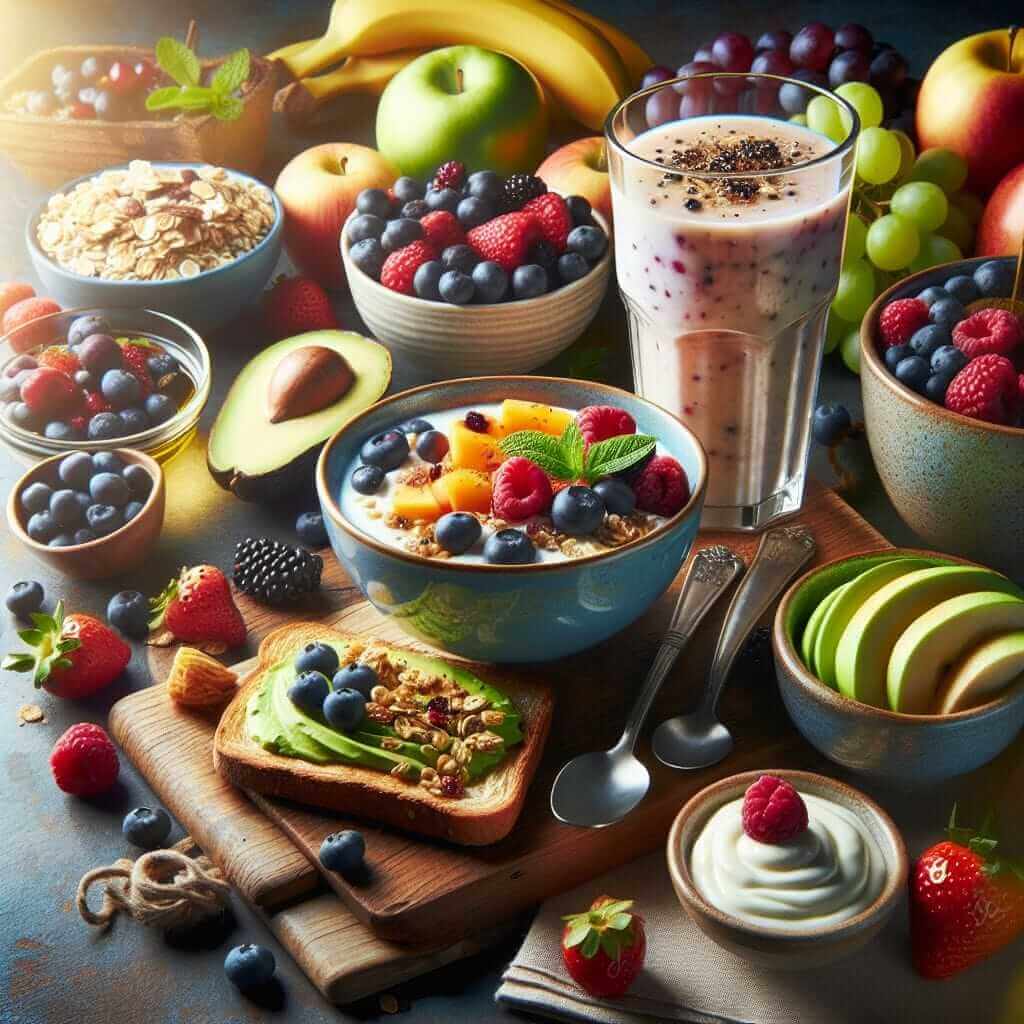As an IELTS instructor with over 20 years of experience, I’ve encountered countless “What do you usually eat in breakfast?” questions in IELTS Speaking Part 1. This seemingly simple question often throws test-takers off guard, leading to hesitant responses and missed opportunities to showcase their English proficiency.
This comprehensive guide delves into the nuances of answering “What do you usually eat in breakfast?” effectively. We’ll explore common variations of the question, provide insightful tips, and equip you with the vocabulary and confidence to impress your examiner.
Why the IELTS Examiner Asks About Your Breakfast
The IELTS Speaking test assesses your ability to communicate effectively in English, covering fluency and coherence, lexical resource, grammatical range and accuracy, and pronunciation. While “What do you usually eat in breakfast?” might seem trivial, it serves several purposes:
- Breaking the ice: It’s a familiar topic designed to ease you into the conversation.
- Assessing fluency: Your response reveals how smoothly and naturally you can express yourself.
- Testing vocabulary: It allows you to showcase vocabulary related to food, meals, and eating habits.
- Evaluating grammar: You can demonstrate your command of present tenses, frequency adverbs, and describing food.
Crafting Your Perfect “Breakfast” Answer
Here’s a breakdown of how to structure a stellar response:
1. Acknowledge the question directly and naturally.
Avoid robotic responses like “My usual breakfast is…” Instead, opt for a more conversational approach:
- “Well, I’m quite a creature of habit, so my breakfast is usually…”
- “That’s an interesting question! I typically start my day with…”
- “To be honest, my breakfast varies depending on…”
2. Describe your usual breakfast.
Be specific and provide details about your breakfast routine. Instead of just saying “bread,” specify the type: “whole wheat toast,” “a croissant,” or “a bagel.” Use descriptive adjectives like “creamy yogurt,” “crispy bacon,” or “fresh fruit.”
Example: “On weekdays, I usually have a quick and easy breakfast. I’ll grab a piece of whole wheat toast with some avocado and a cup of coffee.”
3. Elaborate and provide reasons.
Go beyond simply listing food items. Explain your choices, preferences, or any cultural influences:
- Time constraints: “Since I have to rush in the mornings, I tend to have a light breakfast like…”
- Health considerations: “I’m trying to eat healthier, so I’ve started incorporating…”
- Cultural traditions: “In my culture, breakfast is a very important meal, so we often have…”
Example: “I’m trying to be more health-conscious, so I’ve started incorporating Greek yogurt with granola and berries into my breakfast. It’s a quick and nutritious way to start the day.”
4. Consider variations and weekend routines.
Mention if your breakfast differs on weekends or special occasions. This showcases flexibility in your vocabulary and routine:
- Weekends: “On weekends, I have a bit more time, so I like to make something more elaborate like pancakes or waffles.”
- Special occasions: “If it’s a special occasion, I might treat myself to a traditional breakfast of…”
Example: “Weekends are a bit more relaxed, so I might whip up some scrambled eggs with smoked salmon – a real treat!”
Sample IELTS Speaking Questions about Breakfast
Be prepared for different variations of the breakfast question:
- What’s your typical breakfast?
- What’s your favorite thing to eat for breakfast?
- Do you prefer a light or heavy breakfast?
- What did you have for breakfast today?
- Is breakfast important to you?

Vocabulary Booster: Talking About Breakfast
Amplify your answers with these useful vocabulary words and phrases:
- Types of breakfast: Continental breakfast, full English breakfast, brunch, light bite
- Food and drinks: Cereal, oatmeal, porridge, toast, pastries, eggs (scrambled, fried, poached, boiled), bacon, sausage, fruit salad, yogurt, smoothie, tea, coffee, juice
- Describing taste and texture: Savory, sweet, crunchy, creamy, soft, chewy, tangy, refreshing
- Frequency adverbs: Usually, typically, often, sometimes, rarely, occasionally
- Expressing preferences: I prefer…, I’m quite fond of…, I tend to go for…
Top Tips for Success
- Practice makes perfect: Practice answering various breakfast-related questions beforehand.
- Speak naturally and confidently: Don’t memorize answers; focus on communicating your ideas fluently.
- Use a range of vocabulary: Showcase your knowledge of food-related terms and descriptive adjectives.
- Maintain good eye contact and body language: Project confidence and engagement throughout the conversation.
Conclusion
Remember, the “What do you usually eat in breakfast?” question is an opportunity to demonstrate your English proficiency in a relatable context. By following these tips and practicing your responses, you can confidently tackle this common IELTS Speaking topic and start your exam on a delicious note. Good luck!